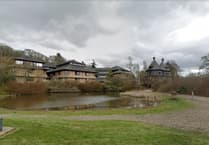The correct Welsh spellings of a couple of villages in Powys have been a topic of discussion between the county council and the office of Welsh Language Commissioner Efa Gruffydd Jones.
On Tuesday, June 25, Powys County Council’s cabinet member for the Welsh Language, Labour’s Cllr Sandra Davies is expected to take a delegated decision to agree the draft Welsh Language Standards annual report for 2023/2024.
The decision needs to be taken to allow the report to be published on the council’s website by the end of the month which is a legal requirement.
Usually, the report would be placed in front of the whole Cabinet.
But due to local government restrictions which mean no Cabinet meetings are taking place in Powys in the run up to the General Election on July 4, this year the report is subject to a delegated decision.
The report by Welsh language officer Sion Rowley reveals that complaints had been received by the council over village names current spelling in Welsh.
In September last year a complaint about the spelling of Llansantffraid was made which claimed that it is wrong to use the “t” in the name.
The report said: “The elected member for the ward (Cllr Gwynfor Thomas) advised that the community’s view was to continue using the spelling of Llansantffraid as decided by the council’s Cabinet on September 30, 2014.”
The spelling of “Abercraf” near Ystradgynlais was also the subject of a complaint last December.
The complainant believed that a circumflex should be placed above the a to make it Abercrâf.
The report said: “We checked the standardised list of Welsh place names from the Welsh Language Commissioner and sought clarification from their research department.
“Officers with expert knowledge of Welsh place names and orthography advised the circumflex should not be used in ‘craf’, but that we should use a hyphen and spell the place name as Aber-craf.”
The report explained that they had informed the complainant of the commissioner’s recommendation and the council will put up signs with the correct spelling when they need to be replaced for “traffic management reasons.”
Other complaints the council dealt with were around the need for Cabinet papers to be bilingual.
Elsewhere in the report forthcoming work for this year to improve Welsh within the council is to: “Create links with Welsh universities to encourage students who speak and are learning Welsh to work for us.”
“Language awareness training” sessions will also be held for senior staff.
Like all other government and public bodies in Wales, Powys council is required to comply with the Welsh Language Standards, introduced under the Welsh Language (Wales) Measure 2011.
This gave the language an equal legal status with English and is supposed to make it easier for people to use Welsh in their day to day lives.




